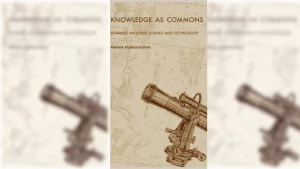The only way to preserve a global Internet is through formulating appropriate global mechanisms, principles and rules that will underpin its governance and these must form the cornerstone of any future roadmap of Internet governance. There is an urgent need to democratize Internet governance structures and make them legitimate, representative and transparent in their functioning.
A failure to make drastic changes to the status-quo could quite easily lead to increased exercise of domestic sovereign authority over what should be a global commons – and therefore a very real threat of ‘balkanisation’ of the Internet. Without a globally agreed set of framing or guiding principles to govern the Internet, the Internet as we presently know it – a global tool of communication – could soon be a thing of the past as each country will attempt to propose its own governance models which it will try and enforce through domestic law. This could even extend to splitting of the rot zone system through the creation of local roots.
A large part of the discourse prior to the NetMundial conference has been centered around the issue of what is the best structural system to regulate a global network – this has commonly been portrayed as a choice between a multistakeholder system – which broadly speaking, aims to place ‘all stakeholders’ on equal footing – against multilateralism – a recognized concept in International law / the Comity of Nation States, where a nation state is recognized as the representative of its citizens, making decisions on their behalf and in their interests.
In our opinion, the issue is not about the dichotomy between multilateralism and multistakeholderism; it is about what functions or issues can legitimately be dealt with through each of the processes in terms of adequately protecting civil liberties and other public interest principles – including the appropriate enforcement of norms. For instance, how do you deal with something like cyber warfare without the consent of states? Similarly, how do we address regulatory issues such as determining (and possibly subsidizing) costs of access, or indeed to protect a right of a country against unilateral disconnection?
There are possibly three broad buckets or methods of governance that need to be examined and we posit that there is space to use all these methods of governance – given the extremely broad and wide variety of issues classified under the general tag of ‘Internet governance’. These three buckets could be:
(a) Multilateral treaty/ agreement: in today’s global political scenario, and given the realities of international law, it is essential that the following be done using a multilateral framework:
- Governing global commons such as control of the domain name system/IP addresses
- Limiting state’s behaviour qua other states and global citizens
- Demilitarising the Internet and banning cyber weapons and cyber war
- Regulating global monopolies – either country or corporate monopolies
(b) A purely multistakeholder platform: this could be utilized in areas where it is essential to have bottoms up consensus on issues – such as the adoption of technical standards and protocols.
(c) Traditional institutions: there may be a need to identify and co-opt existing institutions where certain issues within their respective jurisdictions are to be dealt with. For instance, institutions like WIPO could assist with IP related issues, WTO with general trade and tax related issues etc.
The crux of the matter rests in deciding which is the best governance ‘basket’ to include a particular issue within – taken from both a substantive and enforcement perspective. The challenge is trying to demarcate issues to ensure that each is dealt with effectively by placing it in an appropriate bucket.
Given that the Internet now forms an essential part of the world’s social, cultural and economic infrastructure, there is an urgent need to formulate a binding international framework to delineate rights and obligations inter se states as well as between states and individuals. It is our belief that certain public policy functions in the context of the Internet governance that can only be dealt with through such a multilateral framework. The issue of how decision-making occurs within this framework is a separate issue and can be decided within this multilateral framework.
We believe the following amongst other issues can only be dealt with through a multilateral framework:
Protection of human rights including privacy
Cyber warfare and cyber attacks
Regulatory issues such as cost of access, net neutrality, etc.
Common ownership of the domain name space including control of CCTLDs by the country concerned and internationalising control over IANA functions
Protection and stability of international telecommunication services (right against disconnection etc.)
There is no question about the role of public participation in decision-making processes – this is essential in any democratic system, as is transparency.
However, due to the political systems we have in place – certain things such as the guaranteeing and enforcement of rights can only be done by a nation state – because they represent the will of the people (and can therefore legitimately exercise power including coercive powers etc. for and on their behalf) – for instance India is a republic – this means that the will of the people is represented through the nation state or the government, thereby giving the state the authority to ‘speak for the people’ (it is equally true that checks and balances are required to ensure that this authority is not exercised capriciously or unjustly).
The Internet belongs to more than the connected – the Internet is not built or used only by the privileged and elite of every society – who may have the ability, time and knowledge to connect with the various international ad-hoc processes represented by ISOC, IANA, IETF etc.
Existing I organisations all derive their powers through private contracts. The view of the US and a number of those propagating an Internet independent of nation states (or any form of multi-lateral control) is that the Internet is and should be governed only by contracts amongst parties and organisations and run under a multi-stake holder model. However, all these private contracts operate under the jurisdiction of US law. As long as the Internet is governed under private contracts and its recognition exists only under US law, there is now way that even domain names, allocation of domains and IP addresses can be done in a way that ensures equity and social justice.
There are two problems with contract-based Internet governance. One is it has lead to privatization and corporatization that have eroded competition. The other is that contracts do not and cannot incorporate “human rights” or “sovereign rights” – the rights of either individuals or of nations. A bottoms-up Internet governance, as distinct from developing technical standards and protocols, has no legal mechanism to enforce rights of people, corporations or sovereign rights of countries. Rights stem from either a country’s laws or international treaties. By keeping the Internet governance either under US laws or under “contracts”, the US has ensured that there are no international norms and is no effective global body that can address various issues, such as NSA’s invasive surveillance over other governments and people, and penetration of vital infrastructure of other countries. Neither is there any place for regulatory principles to be exercised – for example, progressive taxation policies for e-commerce transactions that would help developing countries.
The Snowden revelations that reveal the extent to which the USA controls the Internet and its ecosystem (and we have also seen hints of the possible aftermath with numerous countries announcing divergent plans to secure ‘their’ Internet).
US “trusteeship” of the Internet has failed as have supposedly “multistakeholder” institutions such as the I organisations – we need to internationalize essential and global public policy decision making systems to enable them to function for the benefit of global citizens and not merely the first world – which due to historical and other reasons enjoy overbearing influence on these processes. Thus, there is an urgent need to ensure regional / geographic balance and representation of the under-represented and marginalized in decision-making powers – which it would appear, a multistakeholder model precludes by its very nature.



